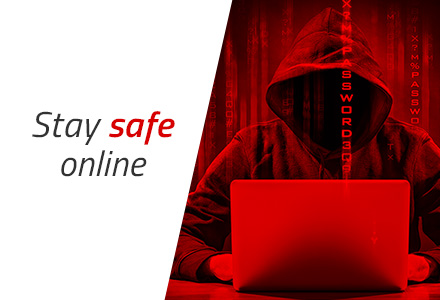Stay safe online; avoid this common CyberCrime trick

#CyberCriminals and #Hackers are always coming up with new tricks to try and scam us. Your biggest line of defence against is informing yourself. The more you know, the harder it is to target you. Stay safe online by learning about this common trick from scammers: personality quizzes on social media.
Do you love taking personality quizzes, IQ tests, or even the frequently shared “fill in the blanks” posts like the one pictured below?

A common “fill in the blanks” post; a very risky game to play.
Some random questions and odd talking points – a seemingly innocent and fun way to help you know your friends and family better – you’re thinking, “What could go wrong?” Sadly, the answer is “a lot”.
#DidYouKnow that this kind of data is very helpful to #CyberCriminals – hackers, identity thieves, and worse?
Take a look at these questions carefully – you will notice that they are very similar to the kinds of #Security questions we’re asked to retrieve a password that we’ve forgotten! Unfortunately, the answers to these questions are even used as passwords by far too many people.
This kind of seemingly innocuous and “fun” little social game is actually a clever way to use the laid-back attitude of people on social media, who are “only talking to friends”, and extract information which could be very useful to criminals.
Stay Safe Online – Get informed
#InfoSec – or information security – starts with YOU. And you best defence starts with staying informed.
While sharing these pieces of information with friends as a matter of normal, face-to-face conversation is fine; doing so online means that there is a permanent and public record of it. Your real friends probably know many of these things about you already, and it’s fun to find out new things. The big difference is that, in real life, there is no record for anyone to see or try to use against you.
Additionally, there is no way to control or recapture this information after you “release it into the wild” on social media.
Armed with this information, a malicious actor could gain access to your email – bad enough in itself.
From there, they can reset access to almost any account that you have by using the standard “Forgot Password” option on any website where you have an account to send a Reset Password email to your email account… which they have access to.
You can quickly see how such a simple but thoughtless mistake online could lead to very real offline problems.
AnyTech365 Recommends
Our recommendation is to avoid these kinds of public data-harvesting attempts altogether. Ignore them, and, warn the friend or family member who posted it of the dangers of sharing that kind of information freely.
Help protect your friends, children, parents, and grandparents now by sharing this blog post across your social media; knowing how hackers can operate is a great way to start protecting yourself and your loved ones.
If you have any questions at all or if you’re concerned about #CyberSecurity, click here get in touch today. We will connect you with a friendly IT expert who speaks your language and will help ease any concerns and ensure that you stay safe online.
PC and Internet help and support from friendly IT experts | AnyTech365

